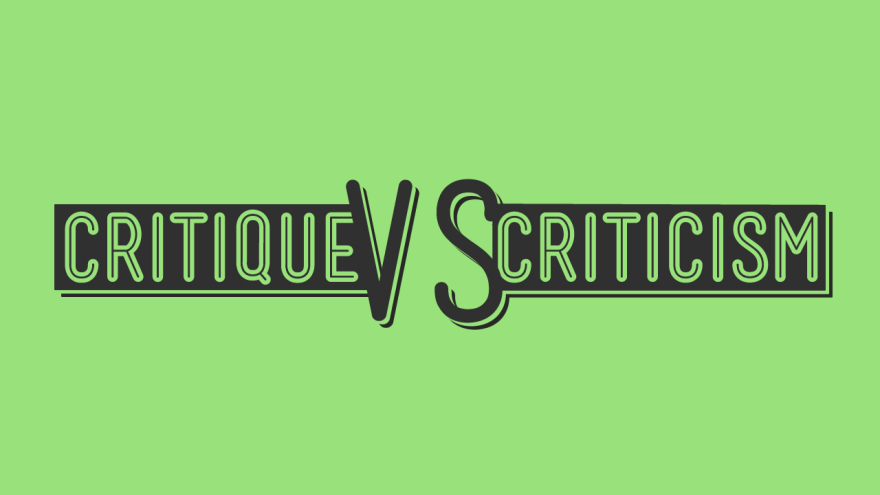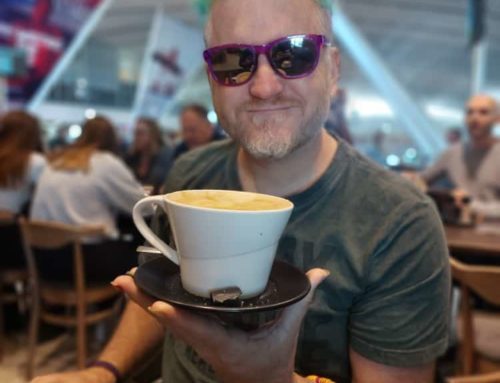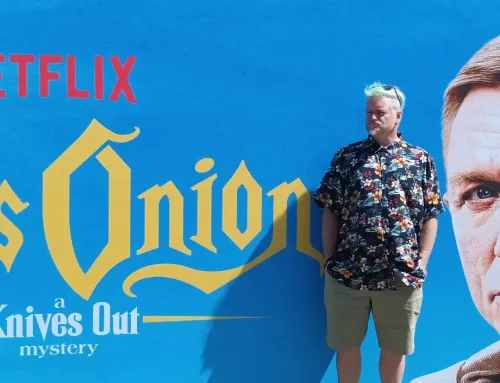A lot of people seem to confuse the words ‘Critique’ and ‘Criticism’ and i thought it would be helpful to try to set the record straight.
Certainly in light of the rise of #ImStaying with all of its positive vibes but hesitation to dive into deep conversations. Where any kind of questioning of this brings censoring, ridicule or ejection from the group.
Anyone who has tried to ask meaningful questions about some of the problematic areas of #ImStaying is typically met with a response that sounds like, “Why can’t you just be positive? Why do you always have to look for the bad?”
What has been the most surprising is that so many of the people i have met who have asked questions have been overwhelmingly positive and hopeful about South Africa, but they have also been committed to doing the hard work required, part which means finding spaces to have the difficult, awkward, confusing, painful and tiring conversations necessary to bring about change [when dealing with a messed up country]. One such group that is trying to provide a platform for those kinds of engagements is Conversations for a Just South Africa.
Which makes me think people are a little confused between Critique [necessary and helpful] and Criticism [often negative and less helpful although can form part of critique as well]

Critique vs Criticism
Critique: a detailed analysis and assessment of something, especially a literary, philosophical, or political theory; evaluate (a theory or practice) in a detailed and analytical way. [Oxford English Dictionary] and also: appraise critically; a serious examination and judgment of something [Vocabulary.com]
Criticism: the expression of disapproval of someone or something on the basis of perceived faults or mistakes. [Dictionary] and also: the action of expressing disapproval of something or someone. A criticism is a statement that expresses disapproval. [Collins]
A lot of people inside the #ImStaying group for example have told people outside not to criticise, which to some extent is valid. Don’t simply be negative about a thing because it is doing well. However, in my experience, this has not been the case. Many of us were super excited by the idea of #ImStaying and rushed to join and it was only once we saw the kinds of posts that were being posted, who was doing the posts and some of the implications and assumptions [and also exclusions] that we started to think it was problematic.
When we Critique something we seek to analyse and assess whether this thing is good or bad. Criticism tends to be about calling out the negative side of something. But Critique insists that we look at both the good and the bad and then make an informed decision about whether something is valuable or harmful.
At school, for example, we were not taught to critique at all. We were given information called facts and were told to learn it and then at the end of each term we had to regurgitate it on to a piece of paper. We were never encouraged to ask why [during apartheid years] we were learning the history of one group of people and not that of the group of people that made up the largest percentage of people in the country. We were not taught to question why some beaches were reserved for some people and why some were reserved for others. We were not taught to critique why the teachers of the school were always white and the cleaners were always black.
[Not much has changed in many of our schools to be honest, but it gives me great joy to see groups like BottomUp working in the greater Grassy Park area, doing this much needed thing – helping the learners to critique language and unform rules and corporal punishment which is illegal but still being dished out and more…]
The importance of the magnifying glass
While those outside should not criticise without knowing more, those inside absolutely should be critiquing.
450 thousand people with positive motivations is a good thing. Stories that set up white people as the heroes and black people as the needy recipients of heroism are not. A group of diverse people starting to share stories with each other and learn about each others cultures is a good thing. A group that suggests you can be positive while ignoring [and silencing] issues like race and poverty and power is not. A group run by white people, where the majority of those with the power in terms of moderation and evictions are white is not a good thing.
So you weigh up the good and the bad and you come to a conclusion as to whether or not you should remain in the group and how you should be if you stay there.
A number of us who critiqued the group felt like there was sufficient cause for criticism and largely left and looked for spaces where the hard work was encouraged, knowing that to turn around a messy situation requires people getting their hands and feet dirty. There are a number of these groups and we are much encouraged by a lot of the conversations going on in them. These groups need to be critiqued as well.
The one i am a part of is called Conversations for a Just South Africa and it is far from perfect. But there is also a whole lot of good in there. Around 1500 people who are looking at issues of class and race and poverty and sexuality and religion and politics and gender and power and trying to hear each other and see each other and learn and unlearn and dismantle and create and build bridges. With the absolute belief that whatever happens in these online spaces has to end up affecting your offline life!
When someone gets stuck in criticism they can become rather unpleasant.
When someone refuses to critique they will likely be largely ineffective.
We need to be learning to critique the spaces we occupy, the power that exists in them, the stories we tell and how they make the various role players in the stories look and the work that we are doing [or not] in the real world.




![The Road to the Catan World Champs in Malta 2022! [Part II]](https://brettfish.co.za/wp-content/uploads/2022/11/IMG_9944-scaled-e1669831201283-500x383.jpg)
![The Road to the Catan World Champs in Malta 2022! [Part I]](https://brettfish.co.za/wp-content/uploads/2022/11/catanchampionships-500x383.jpg)

Brett Fish I need to call you out on being a hypocrite. You seem to have endless time on your hands for virtue signalling. Also you seem to be a worldwide jet setter, travelling the world and living a leisure life. Then you call out people for going to restaurants and spending a lot of money while the poor suffer. You need to check yourself and look at yourself. I think you should cancel your overseas trip as the jets cause huge pollution and also that money could be better used on the poor. That is socialism, but you only seem to like socialism when its not your money. So Fish I am calling you out.
That is certainly a valid argument/question worth considering. Not the virtue signalling, cos i don’t think that is true – perhaps read the post i wrote on virtue signalling recently which explains how i see those things… but the flight question, absolutely good question. This particular trip though has deep significance for my wife and i and so it feels important. We have chosen to use one car rather than two for the past five years and so have severely reduced some of our footprint and so these are definitely things we are thinking about. Thank you for raising it.